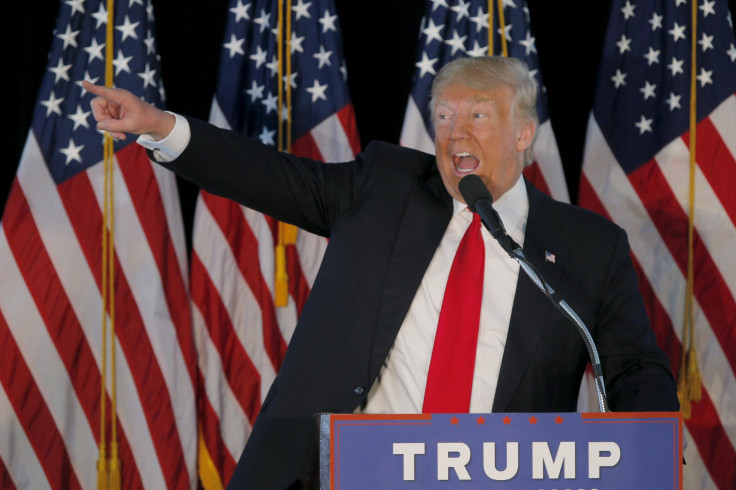On Donald Trump, Charles Koch Breaks With Other Conservative Billionaires

On Sunday, one of the most powerful conservative donors in the United States broke his silence about the 2016 Republican primary. Kansas billionaire Charles Koch — who, along with his brother David, is responsible for crafting the most extensive and influential outside-money network in the country — said in an interview with ABC News that it was "possible" he would prefer Democratic front-runner Hillary Clinton to any of the potential GOP candidates.
That admission seemed to be a warning shot aimed toward one candidate in particular: Donald Trump, the current favorite to win the Republican nomination. Elsewhere in the interview, Koch accused Trump of advocating a "monstrous" mandatory registration program for Muslims in the United States.
"That's reminiscent of Nazi Germany," said Koch. (Trump never definitively endorsed a plan to have all Muslims in the United States registered; he merely responded to a question about mandatory registration by saying, "We're going to have to look at a lot of things very closely.")
As recently as this month, Charles Koch reportedly wanted the GOP to nominate House Speaker Paul Ryan at the July convention, assuming that Trump failed to win enough delegates to lock up the nomination on the first ballot. But Ryan withdrew his own name from consideration two weeks ago.
Anonymous sources within the Koch network have been telling the press for months about Charles Koch's misgivings about Trump. But this is the first time that Koch himself has gone public with his disdain. By doing so, he has given the Republican Party added incentive to block Trump's path; but he has also widened a split within the conservative megadonor infrastructure between those who can live with Trump and those who can't.
Wyoming investment manager and Koch network associate Foster Friess, who initially supported Rick Santorum's now-defunct bid for the Republican nomination, told International Business Times he would "enthusiastically support the Republican nominee," no matter who it turned out to be.
"Mrs. Clinton promises to continue President Obama's policies, which have generated a greater divisiveness in our country than that which existed seven years ago," wrote Friess in an email to IBT. "Bigotry toward values on which our nation was founded, and which are now inconsistent with those mandated by the government under President Obama, would increase."
Trump would also have the likely support of Las Vegas casino magnate Sheldon Adelson, who is probably the most powerful Republican donor in the country besides the Kochs. He and wife Miriam Adelson topped Forbes magazine's list of billionaire donors in the 2012 election cycle, thanks to the combined $36.25 million they put toward Mitt Romney's presidential effort and Newt Gingrich's failed bid for the GOP nomination.
Adelson reportedly favored Senator Marco Rubio for the 2016 nomination at first, but Florida's junior senator dropped out of the race in March; around the same time, the Vegas billionaire said he wouldn't mind throwing his support behind Trump in the general election.
"Trump is a businessman. I am a businessman. He employs a lot of people. I employed 50,000 people," said Adelson last month. "Why not?"
If Trump wins the Republican nomination, that means some of the top conservative donors in the country may be on opposite sides of the general election. But Clinton, for her part, has preemptively disavowed any Koch support.
Not interested in endorsements from people who deny climate science and try to make it harder for people to vote. https://t.co/TWN4zYhMBh
— Hillary Clinton (@HillaryClinton) April 24, 2016
© Copyright IBTimes 2025. All rights reserved.






















